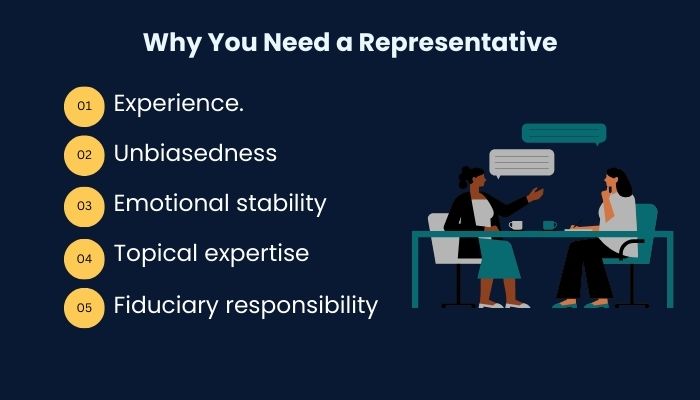When you sell your Arkansas home, you want everything to go right. You want to sell your house for the highest possible price. You want the process to go smoothly. And you don’t want to make major concessions, like issuing major repairs that you’ll pay for out of pocket.
Obviously, you can’t control everything. But there are some strategies and tips that can help you win negotiations when selling your Arkansas real estate.
Contents
The Power of Real Estate Negotiating
In real estate, negotiation is an incredibly powerful tool for both buyers and sellers. With both a buyer and a seller at the table, each party has an opportunity to make concessions or modifications to an agreement so that the agreement is more in their favor. Sometimes, parties can negotiate trade-offs that put both parties in a better position. Other times, one party simply pushes to see how far they can take the deal in their favor.
Regardless of whether you have a more aggressive or defensive approach, it’s important to be a good negotiator when selling an Arkansas home. With better negotiation approaches, you can squeeze more value out of your home, make fewer concessions, and ultimately walk away happier with the transaction.
Why You Need a Representative
It’s entirely possible to sell a house on your own and do your own negotiating. But it’s much, much better to have a representative on your side, such as a real estate agent who will negotiate on your behalf.
These are just some of the advantages:

- Experience. The most obvious benefit here is experience. Real estate agents are negotiators by trade, and they typically have years of experience negotiating with other real estate agents on behalf of their home selling clients. They understand the nuances of negotiation arguments, they aren’t going to be intimidated by aggressive negotiators, and they’ll work on your behalf to get you the best deal possible. Even if you have some negotiation experience, it’s likely that your real estate agent has even more – and negotiation may be the most important factor for success.
- Unbiasedness. Even if you have lots of experience negotiating, you’re probably going to enter negotiations with preconceived notions and biases, which can disrupt your ability to negotiate well. You might be biased because of your lack of real estate selling experience, or because you’re emotionally attached to your own home. You might not have all the information on a given topic, and you might not be able to see this deal in a neutral light. Your real estate agent will be much less biased, and therefore much more capable of engaging in an objective negotiation strategy.
- Emotional stability. Similarly, because your real estate agent is somewhat removed from the situation, they’ll probably have more emotional stability when negotiating. If you know anything about negotiation, you probably understand that getting too emotional during the process can compromise your eventual results. Not only will you make less rational decisions during the negotiation, but if your negotiation opponent picks up on your emotional investment, they may attempt to exploit it. Your real estate agent is going to be emotionally neutral and stable, and thus much better capable of securing ideal results.
- Topical expertise. Real estate agents in the Arkansas area are deeply familiar with Arkansas real estate. They understand what homes in the area are selling for and why, and they’re positioned to make persuasive, compelling arguments in your favor at the negotiation table.
- Fiduciary responsibility. Your real estate agent is going to act in your fiduciary best interests, pushing the sale price of your home as high as possible. If there is any possible way to get a better deal, they’ll try to find it.
How to Win Negotiations When Selling Arkansas Real Estate
What general strategies are best employed when negotiating the sale of an Arkansas home?
- Start high. One of the most classic, most appreciated negotiation tactics is to start higher than you’re actually willing to settle for. If you want to get $300,000 out of your Arkansas home, consider listing it for sale at $350,000, or even higher, depending on the dynamics of the market. Even once negotiations begin, it pays to make offers and counter offers at higher prices and with more favorable terms, then work your way downward. That said, don’t start too high, or you’ll end up scaring off potential buyers.
- Understand the market. Before you can negotiate a home sale price effectively, you need to understand the dynamics of the market. If it’s currently a buyer’s market, in which terms are more favorable to buyers, you won’t be able to get away with aggressive negotiating tactics. Not only will buyers be more willing to move on if the terms are unacceptable, but you’ll also have a harder time finding a new buyer if the negotiations end up going south. Conversely, if you’re selling in a seller’s market, you’ll have much more freedom and flexibility. After all, if a deal doesn’t work out with your initial prospective purchaser, you’ll probably have many more buyers lined up to try and do business with you.
- Be prepared to walk away. It’s extremely hard to bluff effectively, even if you know what you’re doing. That’s why some of the greatest negotiators are always prepared to walk away. If you’re committed to getting a certain result, you need to be prepared for the possibility that you will need to terminate negotiations and walk away if you don’t get it. I mean you should walk away from each negotiation and that doesn’t give you everything you want, but it does mean you need to be ready to lose an opportunity if it’s not the right opportunity.
- Do your research. Negotiation is much easier and more accessible when you have objective information to work with. Accordingly, long before you sit at the negotiation table, you need to do your research. What have similar properties in the area sold for in the recent past? What economic variables are currently in play? What are the current market dynamics and how might they change in the near future? What are some ways you can alter the terms of the agreement in your favor if you can’t get the price you want?
- Be objective. Skilled negotiators know to remain objective in their presentations and analyses. You can’t persuade a buyer to pay more for your home because it has sentimental value to you; You might be able to persuade them to pay more for your home because statistics indicate it’s worth more, considering the context. Similarly, when refuting counter arguments or rejecting counteroffers, you should remain as neutral and unemotional as possible, focusing on objective data and your clearly stated goals.
- Pace yourself. Negotiation for the sale of a house is sometimes long and complicated, so try pacing yourself. If you put too much effort in at the beginning, or if you come off as too aggressive, it could end up working against you. Instead, take things one step at a time and try to be patient during the process. This is especially true if you end up rejecting offers and waiting for new ones.
- Keep your emotions and preconceived notions out of it. It’s very human to have an emotional response to a negotiation in process. If a buyer makes an offer you feel is unfairly low, you might take it personally, even if only slightly. If you’re starting to become impatient with the process, you could become frustrated. However, to be a more effective negotiator, you need to keep your emotions and your preconceived notions out of negotiations entirely. The moment these factors begin influencing your decisions, the quality of your decisions will decline. Logic and rationality, with a splash of persuasiveness, win negotiations.
- Consider extra costs. When negotiating, don’t forget about extra costs that you may need to account for. These include things like closing costs, agent commissions, and various other fees from financial institutions. Each of these costs could impact your bottom line, but more importantly, they can function as additional items to be bargained for.
- Be ready to make some concessions. No matter how excellent your property is or how favorable the market is to sellers at this time, you’ll need to be ready to make some concessions. You may not end up making those concessions, but you should still be prepared to utilize them if necessary.
- Actively listen. You can negotiate much more effectively if you truly understand who you’re negotiating with. Accordingly, you need to actively listen, especially early in the negotiating process. What does this party say they want? What does it seem like they really want?
Are you looking for a real estate agent who can professionally negotiate on your behalf? Or are you currently wrestling with other real estate issues in Arkansas? Our team of real estate experts can help – so don’t hesitate to contact us today!
- Why Consider Off Market Real Estate in NW Arkansas? - January 30, 2025
- What Is a Good Mortgage Interest Rate for Buying Property in NW Arkansas? - January 16, 2025
- Is Staging Your NW Arkansas Home Worth It? - December 18, 2024
